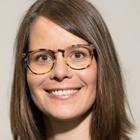Briefing Paper
Post-conflict societies: chances for peace and types of international support
Fiedler, Charlotte / Karina MroßBriefing Paper (4/2017)
Bonn: German Development Institute / Deutsches Institut für Entwicklungspolitik (DIE)
Dt. Ausg. u.d.T.:
Post-Konflikt-Gesellschaften: Chancen für den Frieden und Arten internationaler Unterstützung
(Analysen und Stellungnahmen 5/2017)
see also: Identifying pathways to peace: how international support can help prevent conflict recurrence in: International Studies Quarterly, 66 (1), 2022
Preventing crises and conflict recurrence in post-conflict societies remains a major concern for international politics. What exactly characterises post-conflict societies, and what are their chances to avoid renewed conflict? What does this mean for peacebuilding efforts, and what types of international support do they receive? Based on a rich compilation of partly newly coded data by the project Supporting Sustainable Peace at the German Development Institute / Deutsches Institut für Entwicklungspolitik (DIE), this briefing paper analyses international support to 28 countries that emerged out of a civil war after 1990. Moreover, it analyses their predisposition for renewed violence based on established risk factors for recurrence.
Recurring violence haunts many countries that have experienced a civil war. Even after a violent conflict has ended, the challenge to build stable peace seems often insurmountable. In fact, peace frequently falters shortly after it has been achieved. Unfavourable background conditions, often created or intensified by the previous conflict, reinforce the challenge and contribute to the conflict trap countries appear to face. Although much international support has been provided to those struggling to overcome their violent past, the amount of official development assistance (ODA) varies strongly between recipients, as well as among different areas of engagement. Based on the data gathered, three main messages become particularly clear.
First, half of the cases experience civil war recurrence; the other half remain relatively stable. When civil war recurred, it was usually severe and took place within the first five post-conflict years. The risk of recurrence is enhanced by the fact that almost all post-conflict societies struggle with unfavourable background conditions known to amplify the likelihood for renewed political violence, such as conflict in the neighbourhood. Chances for peace do exist, yet policy-makers need to be aware of – and prepared for – the high risk of renewed conflict.
Second, it is striking that those post-conflict societies that receive considerably more international support experience fewer recurrences of civil war. This is even true with respect to each one of the four issue areas that make up international peacebuilding support: socio-economic foundations; security; politics and governance; and societal conflict transformation (SCT). Notably, it is not that external actors only choose to engage in the easy cases where they face the most favourable conditions. Although these findings warrant further analysis, they are a strong indication that international support to the four issue areas does indeed reduce a country’s likelihood of experiencing renewed violence.
Third, much potential exists to strengthen support to SCT in post-conflict societies. Many practitioners and academics stress that supporting conflict transformation at the societal level and dealing with the past experience of violence is of utmost importance to create sustainable peace. Our new dataset demonstrates that SCT has received the least support by international actors; in one-third of the cases, international donors did not engage in this area at all.
Kontakt
Cornelia Hornschild
Koordinatorin Publikationen
E-Mail Cornelia.Hornschild@idos-research.de
Telefon +49 (0)228 94927-135
Fax +49 (0)228 94927-130
Alexandra Fante
Bibliothekarin/Open Access-Koordinatorin
E-Mail Alexandra.Fante@idos-research.de
Telefon +49 (0)228 94927-321
Fax +49 (0)228 94927-130




